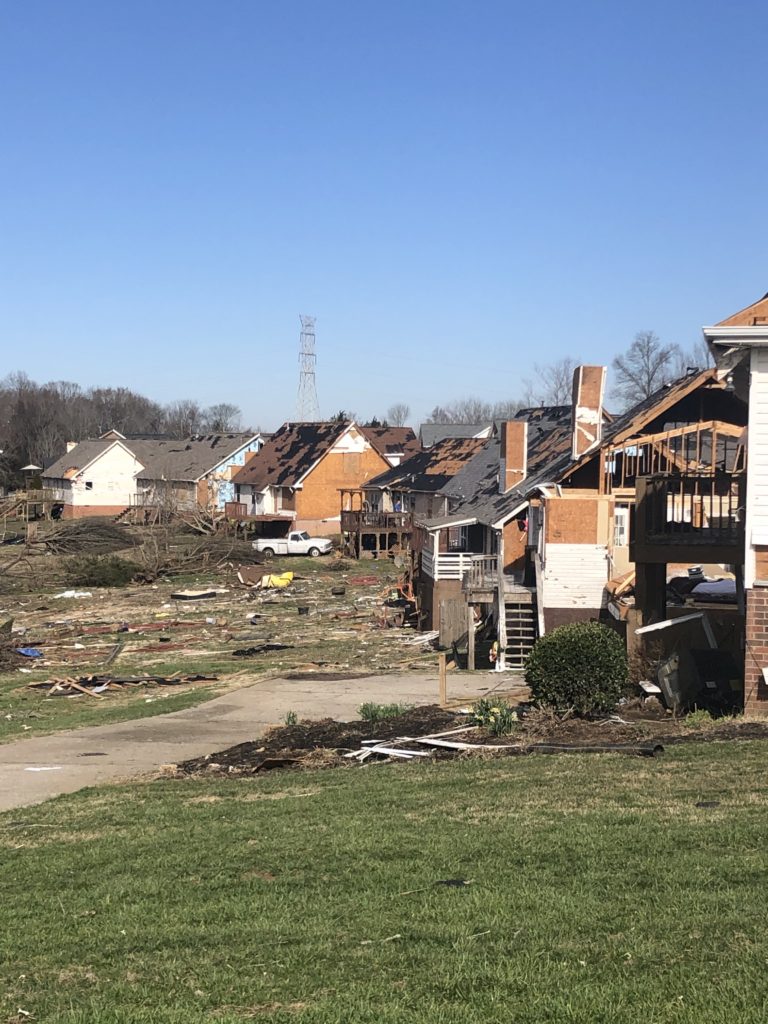The coronavirus is here and it’s making its presence known. Schools are shutting down. Stores are limiting the amount of water and hand sanitizer you can buy. New York has called the National Guard into certain neighborhoods. The governor of Kentucky asked churches to stop gathering for worship. Washington State is prohibiting gatherings of more than 250 people in Seattle. The Warriors will start playing home games without fans present. Panic is high. The world seems to be coming apart.
In the midst of all of this, it’s tough to know how to make sense of the stories and data that are being thrown around. Some stats are more daunting than others, some countries are having more trouble than others, and the opinions as to why there are so many differences are many.
At this point, a little over 1,000 of the 327 million people in the U.S. have the virus, with over 30 having died from it. More cases will, of course, be reported. New measures will be taken. Endless stories will tell us many of the details.
As we continue to deal with this, consider appropriate responses, and try not to lose our minds in the process, I’ve found the following information helpful in facing the coronavirus with facts and faith, rather than fear.
Learning what the words “outbreak” and “pandemic” actually mean reduces fear – I don’t know about you, but when I hear the media use these words every other word, I feel the panic starting in my germaphobe mind. My mind flashes scenes of the movie Outbreak and every horror film or stat I’ve ever come across. But once I found out what those words actually mean, it changed how they impacted me. You probably already know, but if you don’t, here’s what two key words mean:
- Outbreak – “Outbreak” simply mean there are more cases than expected. So, since they were expecting 0 cases of the coronavirus, 2 cases would be considered an “outbreak.” So every time you hear “outbreak,” hear them say, “we have more than expected.”
- Pandemic – “Pandemic” simply means that the “outbreak” (more than expected) is taking place in countries across the world. Since the world wasn’t expecting this virus and it has reached lots of countries (which isn’t hard to do in our day), we are in a “pandemic.”
The next time you hear “outbreak,” remind yourself that they mean, “more than expected.” And the next time you hear “pandemic,” remind yourself that they mean, “more than expected in the world.” This doesn’t mean it’s not serious, but it helps you avoid making it more serious than it is.
The coronavirus is harder on people with weaker immune systems (older people, people with cancer, diabetes, etc.) than the flu, but easier on young people than the flu – The Washington Post noted that the death rate for the “over 70” population in Wuhan was up around 20%; for those under that age it was .8 or less (flu), for those younger it was less. One of the main reason Italy is struggling significantly is because Italy is the oldest country in the world. The elderly continue to make up most of the deaths by far. Let’s pray for the elderly across the globe facing this fierce virus. Let’s ask God for their protection, healing, wisdom on what changes they need to make, and that all would know Christ.
The more time goes by, the lower the initial, scary coronavirus data gets – With each passing week the death rate numbers go down. “The death rate is a calculation of the number of known deaths out of the total number of confirmed cases.” None have gone up. Why? Because the number of people infected is believed to be much higher than initially reported. The higher the number goes, the lower the death rate goes. That number is believed to be higher because for most people the impact of the coronavirus is “mild” so they wouldn’t even think to get tested and many places didn’t have “enough tests” to actually find out how many people had the virus.
Countries with government run healthcare have had a more difficult time responding to the coronavirus – It’s a scary thought to turn the keys to healthcare over to the same people that run the DMV. It’s even scarier to do that for countries who have governments that couldn’t run the DMV as “excellent” as we do here. But that’s the reality. When you look at stories out of Wuhan, China (ground zero for the coronavirus), you find a healthcare system that was an absolute mess. The hospital situation was run by a communist party who ignored previous year complaints that new hospitals were needed because of a lack of space for such a big city (11 million in Wuhan). At the end of 2018, their hospitals were 94% full. Their requests were ignored, which is why you can find stories of elderly people with the coronavirus trying to get into 3 hospitals with no success. In Italy, their government run healthcare system produces a wide range of experiences for people, some great and some awful. The same disease has vastly different recovery rates in different parts of the country. This means that the people who often most need the help won’t be able to get the needed help. Everything I’ve read about these government healthcare systems make total sense of my experience with them in the twenty or so countries I’ve been too. Pray for their healthcare system. Pray for ours. The coronavirus is a problem, but it’s made worse in countries that have handed their healthcare system over to the government.
The spread in Wuhan, China was enabled to a significant degree by the lack of willingness of Chinese government officials to talk about the disease while it made it’s way through one of the largest and most dense cities in the world – China took about a month to communicate what you’re hearing non-stop today. Not only that, they kept quiet while the virus was passed around in one of the best places to pass it around, a huge, dense, city (Wuhan). That’s why the rates of infection are much higher there than anywhere else in China. Be thankful that information is out and people are being more intentional about cleaning their hands, etc.
The coronavirus is serious. That’s why it’s so important to think through what we’re hearing and seeing. When you do, you see that it is significantly more dangerous than the flu for older people and those with a compromised immune system (have had cancer, have diabetes, had an organ transplant, etc.), but the same or less dangerous than the flu for folks the younger you get. How it has been handled differently has a lot to do with various approaches to government and healthcare.
As the number of cases continues to grow, the information we can learn does to, here are a few ways I’d encourage you to respond to our current coronavirus problem.
Pray This Problem – Jesus said that we are to bring our “weariness” and our “burdens” to him (Matt. 11:28-30). Let’s make sure that we aren’t just meditating on the burdens created by this situation, let’s pray them. Pray for those that have it or will get it. Pray for the people unusually at risk. Pray for wisdom for government and church leaders. Pray, pray, pray. Every problem is an opportunity to pray. Don’t miss out on this one.
Do Your Part – The best medical advice in all the world about fighting this virus is the same medical advice, for the most part, that we get every year. Wash your hands. Don’t touch your face. Sneeze and cough into your arm. If you feel sick, stay home. Wipe off surfaces. If we do these basics, we are doing our part. It will make a huge difference.
Avoid Overreaction And Underreaction – I’ve found that people either tend to overreact in these situations (looking at you, “Mr. I Bought All The Toilet Paper From Costco”) or underreact (looking at you, “Mr. I’m Going Stop Washing My Hands College Student Just To Make A Point”). Figure out your tendency and battle it. This isn’t Ebola that killed 50% of the people who got it, for most people it’s closer to the flu’s .1%. But this isn’t just the regular flu either, especially for older people and those with pre-existing conditions like cancer, diabetes, and those that have had organ transplants. Let’s be sober-minded and steady as we do our part.
Give People Freedom To Process This Challenge – Everybody responds differently when they are reminded that they aren’t in control, they are vulnerable, and death is real. Pray for everyone to look to Jesus in the midst of this. Give them space when they respond differently than you. Take a long term approach relationally.
Consider Recommended Courses Of Action Critically – Just because a government leader recommends something doesn’t mean it’s the wisest course of action. Today the Governor of Kentucky recommended that churches stop gathering for worship. Curiously, he didn’t recommend that other types of assemblies stop meeting. Nothing was mentioned about Kentucky Basketball games and March Madness. Their schools are still meeting. Even if churches listened to him, which most won’t, it’s unlikely to do much good with all of these other assemblies continuing as is. Again, let’s pray for our government leaders, listen to their perspective, but I wouldn’t follow them uncritically.
Meditate On The Power And Love Of Christ Until You Trust Him Enough To Rest – Inner peace doesn’t come from knowledge, delusions of control, or defeating the coronavirus. Death is always at the door in a world like this. No, inner peace comes from trusting in a God more powerful than death who lovingly sent his Son to rescue from eternal death. Trust doesn’t replace action, it reorients it. In this world, you’re always more vulnerable than you realize. In Christ, you’re always more secure than you realize. Trust him. If he went to the cross for you and defeated death, he won’t leave you now. Find a few Bible verses to meditate on in these times as you do your part.
The coronavirus is serious, but it has an expiration date. As Christians, let’s be more effected by the presence of Christ than the presence of the coronavirus. That way we’ll be marked by peace more than panic. Sure, let’s stay up to date on all of this, but let’s meditate on something better as we pray for those all around us and pursue God’s best in these coming days.


